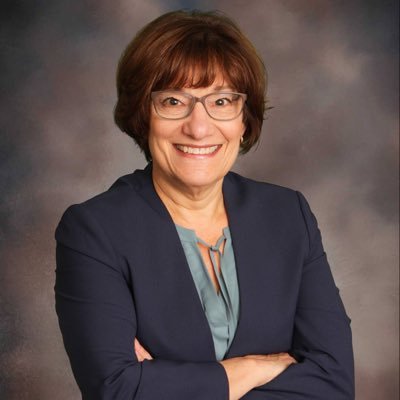Carolyn Berkowitz, President and CEO
Association of Corporate Citizenship Professionals (ACCP)
Larry Fink is worried about losing ground. Will the political divide in our nation undermine stakeholder capitalism, just as it is becoming mainstream? After two tumultuous years in which the interconnectedness of business and society became evident, Mr. Fink’s aim in 2022 is for CEOs to stay the course, continue to serve the breadth of stakeholders, and resist being “hijacked” by the right or left. He is both protecting the progress we’ve made and advocating for more.
This is our time to demonstrate to those in our executive suites that corporate responsibility is a hallmark of long-term business success and is not, as Mr. Fink declares, “just a fad.”
Mr. Fink makes clear in his annual letter to CEOs that the future of stakeholder capitalism is vulnerable to the influence of partisans. His first order of business is to quell the skepticism of traditionalists by distancing his principles from movements championed by the left. “Stakeholder capitalism is not about politics…It is not ’woke.’ It is capitalism,” he states, lest anyone serious about profit think otherwise. He goes on to say, “We focus on sustainability not because we’re environmentalists, but because we are capitalists and fiduciaries to our clients.” He is defending against critics who question his capitalist bona fides and fortifying other CEOs with the context and language of profitability so they can do the same.
While I may personally bristle at the suggestion that environmentalism and/or equity are fluffy, his words are instructive to us as we champion change in our companies. Business leaders want facts, and we need to be prepared with and fluent in the evidence that backs up our work. That’s why ACCP has published Making the Case for Socially Responsible Business each year since 2020 to provide recent and relevant data that supports the business case for corporate responsibility.
Mr. Fink’s letter provides insights and advice on the social and environmental forces that have defined our work in recent years, and most of it is not news. For CSR professionals, his words are reminders that we must continuously educate, adapt, and innovate our work to address the challenges and expectations we face, including:
- The pandemic has “turbocharged an evolution” in all companies, and there is a need for corporations to reinvent themselves continuously.
- Companies should take a position and advocate on societal issues that are material to their businesses but not on those that are immaterial.
- The employer-employee relationship is forever transformed, and corporations must respond to employees seeking more flexibility, more meaning, and stronger bonds with their employers.
- Racial equity, childcare, and mental health are “center stage” for employees and therefore for CEOs, who must learn to use their voice and connect on issues of importance to their people.
- The growing expectations from stakeholders for carbon neutrality and accountability in the form of uniform disclosures (TCFD).
- Partnerships with governments around policy, regulations, community support, innovation, and technology are vital strategies for economic success.
The letter closes by acknowledging that to sustain profitability amidst the polarity, CEOs must hold purpose as their North Star, even though it will be challenging to navigate. ”CEOs will invariably have one set of stakeholders demanding that we do one thing, while another set…demand that we do just the opposite. That is why it is more important than ever…to be guided by [the company’s] purpose.”
Mr. Fink’s letter helps clarify the valuable role of corporate social responsibility professionals in 2022:
- Collect and amplify data that supports our companies’ purpose, using both general and company-specific data to make the case.
- Provide actionable and accessible ways for our companies to live their purpose and make it easy for the company and its employees to engage in this work.
- Connect our work to the big-picture purpose to help our leaders keep their North Star visible and demonstrable to stakeholders and tell a compelling story.
- Partner with the business to adapt and reinvent strategies and relationships that best address material issues and innovate with both the trends and stakeholder groups in mind.
By doing these things, we’ll build the confidence of our leaders to stay the course and not lose ground, because as Mr. Fink makes clear, “Putting your company’s purpose at the foundation of your relationships with your stakeholders is critical to long-term success.”

